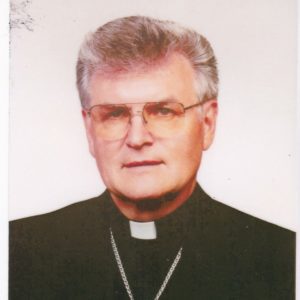Bishop Peter Esterka, S.T.D. was born November 14, 1935, in Dolni Bojanovice, district of Hodonin in Czechoslovakia. As a young boy he witnessed the horrors of World War II as the front lines formed a few miles from his home. He spent the closing days of that war in a bomb shelter with his parents and younger sister.
In February 1948 when the Communists took over the government and outlawed the public practice of religion, he was a student at the Jesuit high school in Brno. It was closed and the teachers were taken away. During the following years conflict grew between him and the Communist teachers who were assigned to educate him in party values. He was refused schooling except at a Communist training school and was ultimately called before the secret police for interrogation.
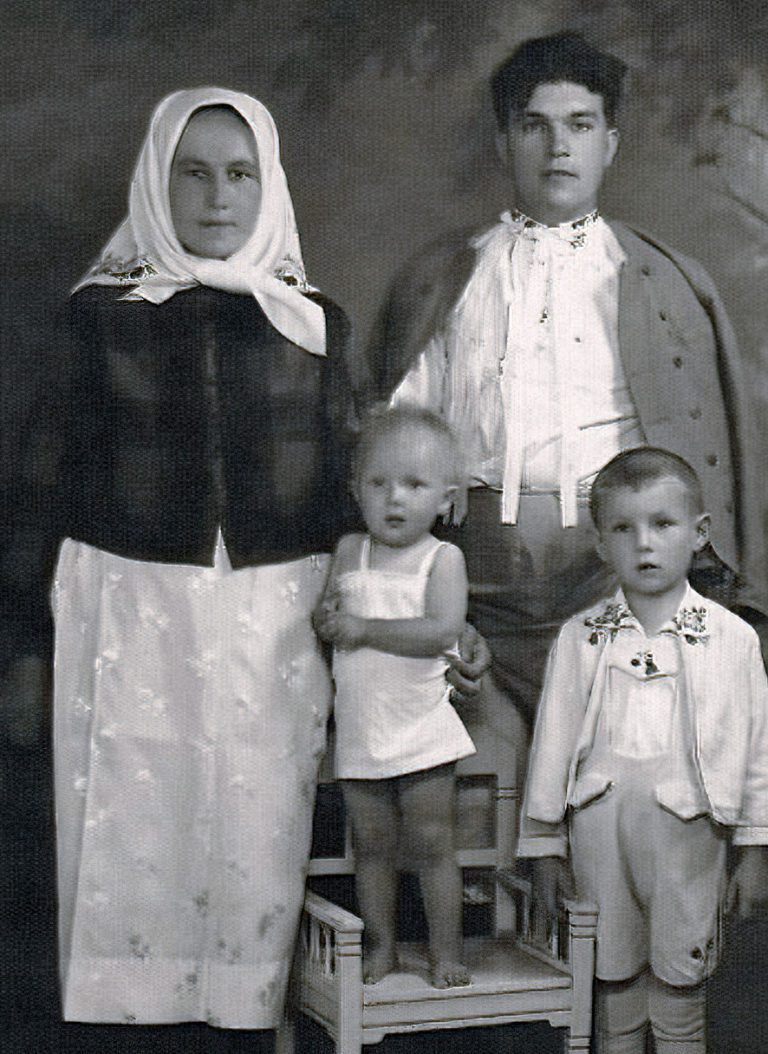
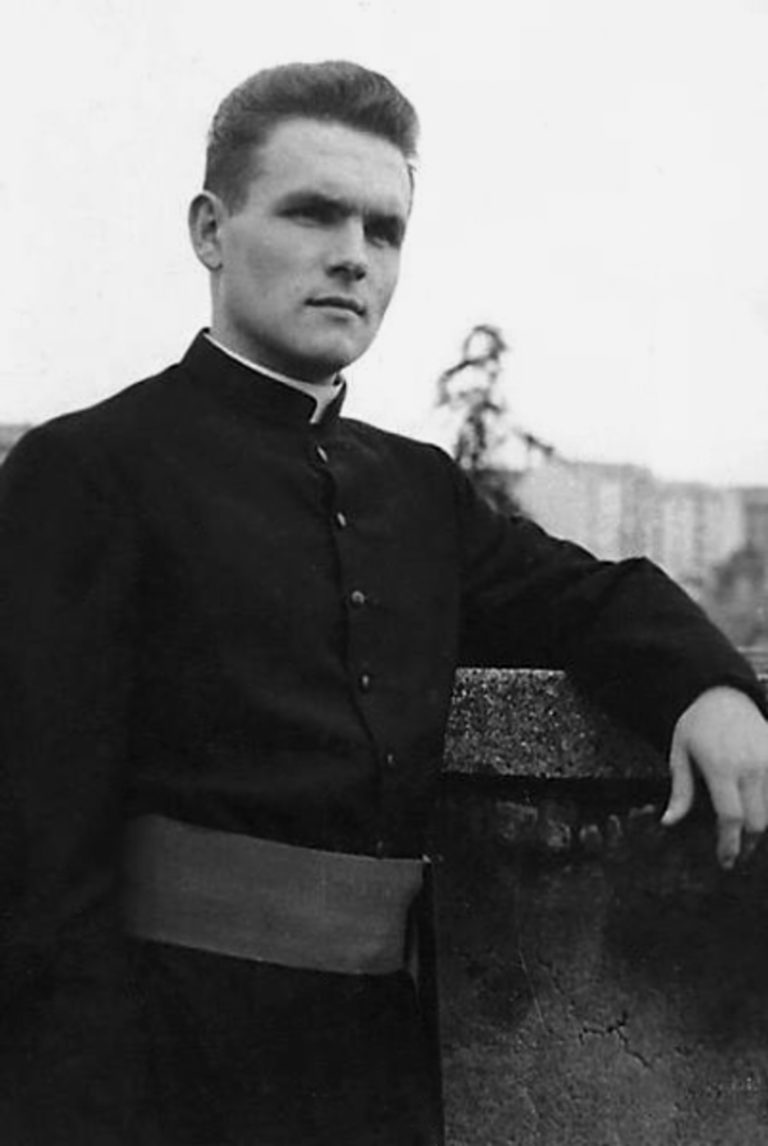
In June 1957, with two other young men, he cut through barbed wire to cross the heavily guarded border into Austria. Father Esterka’s escape story has been published under the title Never Say Comrade (1967). After several months in an Austrian refugee camp, he made his way to Rome and lived at the Pontifical College Nepomucenum while studying philosophy and theology at the Pontifical Lateran University.
He was ordained a priest on March 9, 1963, in the Basilica of St John Lateran. His first mission was to San Antonio, Texas.
After three years as assistant pastor in Texas, he returned to Rome to earn his doctorate in theology at the Lateran University. His dissertation “Toward Union: The Congresses at Velehrad” was published in the Journal of Ecumenical Studies (Vol. 8, No. 1, Winter 1971).
From September 1967, he taught moral and dogmatic theology at the College of St. Catherine in St. Paul, Minnesota.
He became an American citizen in December, 1968. In 1980 he was named full professor of theology. During his teaching career, he assisted in several parishes in the area, and from 1974 to 1995, he was a chaplain (Lt. Col.) in the Air Force Reserve Unit in Minneapolis.
In 1978, Peter Esterka began his work among Czech Catholic immigrants living in the United States and Canada. With the support of Bishop John Morkovsky, he founded the North American Pastoral Center for Czech Catholics in 1984. Its first mission was to see to the financial survival of the Pontifical College Nepomucenum in Rome. Two years later, Fr. Esterka was named Vicar for the United States and Canada, which in 1994 was extended to include Australia.
He became Monsignor in 1987 and Prelate in 1992.
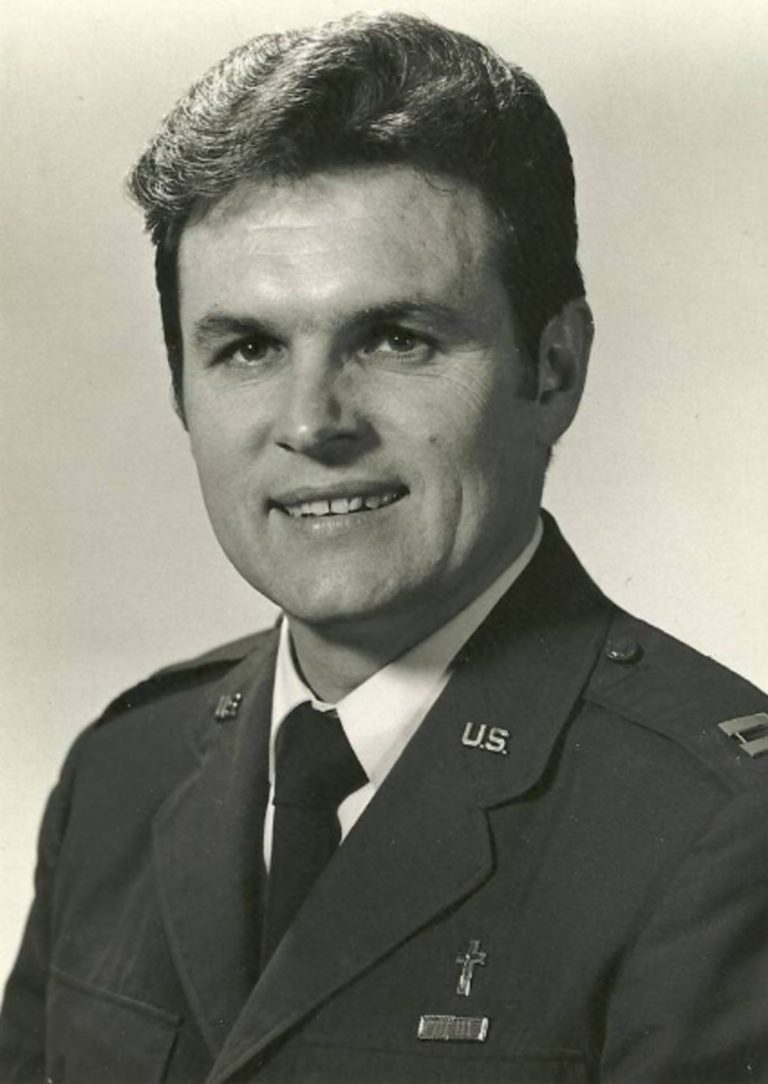
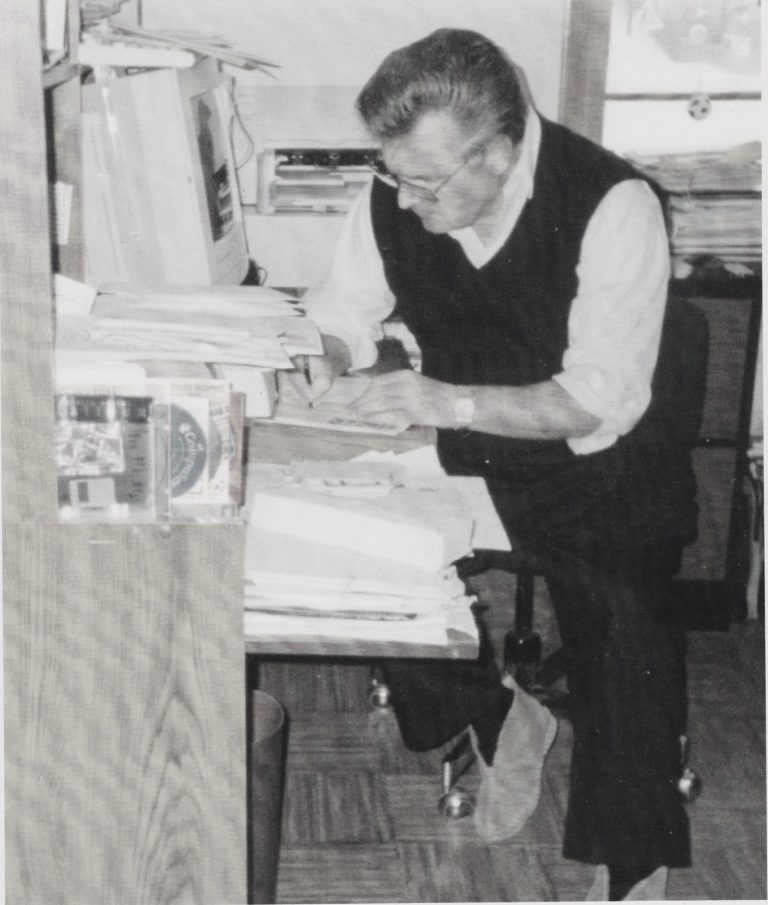
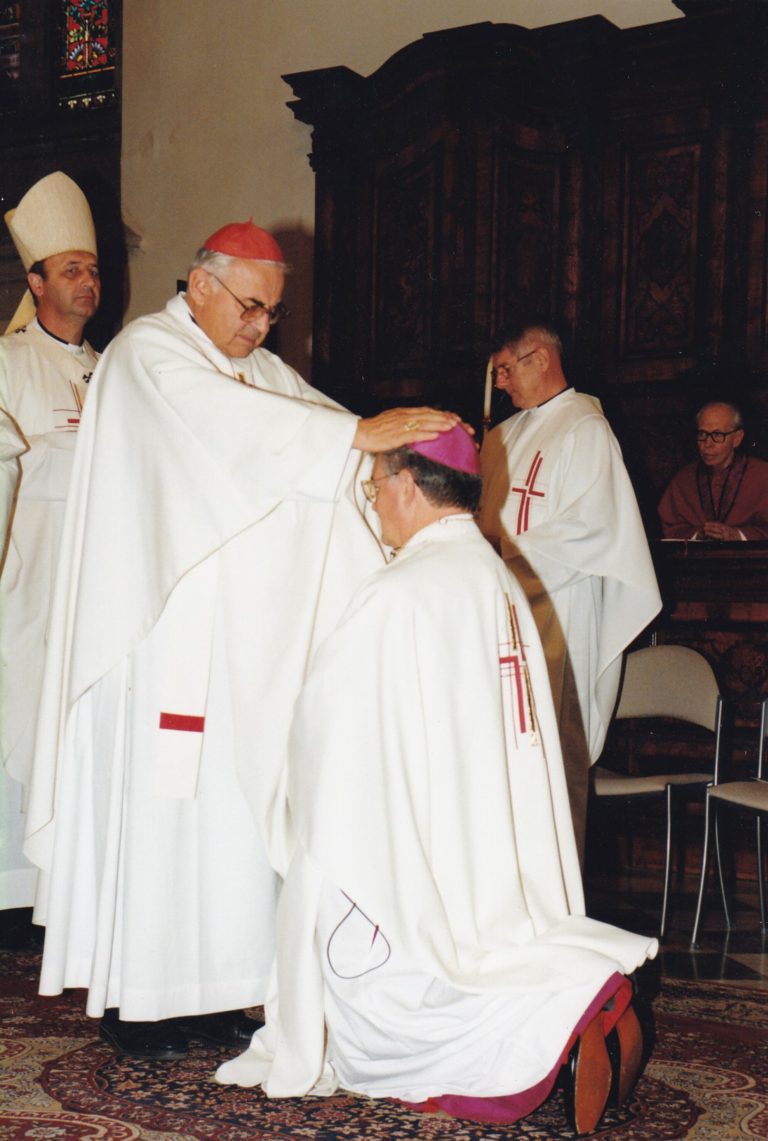
On July 5, 1999, Pope John Paul II named Msgr. Peter Esterka Auxiliary Bishop for the Diocese of Brno with the stipulation that his main work would be the spiritual welfare of Czech Catholics living outside of the Czech Republic. He was given the titular diocese of Cefala.
On September 11, 1999, Msgr. Esterka was ordained Bishop in the Cathedral of Sts. Peter and Paul in Brno.
In the summer, of 2007, he published a book of pastoral theology with the title: Rozhodni se pro risk (Decide to Take a Risk). Published in and for the church in the Czech Republic, it is available only in the Czech language.
He resided at the Velehrad California Czech Center in Placentia, California, while continuing to serve the Czech communities in San Diego, the Los Angeles area, and San Francisco by holding monthly Masses in the Czech language. Even after formal retirement, he continued to oversee ministry to the sacramental and spiritual needs of new immigrants in Chicago, New York, Toronto, Montreal, and Australia.
Bishop Esterka died peacefully on August 10, 2021. His life was celebrated in a funeral Mass at Christ Cathedral in Orange County on August 20. His body was sent to his home parish in Moravia where a funeral Mass was celebrated in the Ss. Peter and Paul Cathedral in Brno, where he was ordained bishop, followed by internment in the cemetery of his home parish, St Wenceslaus in Dolni Bojanovice.
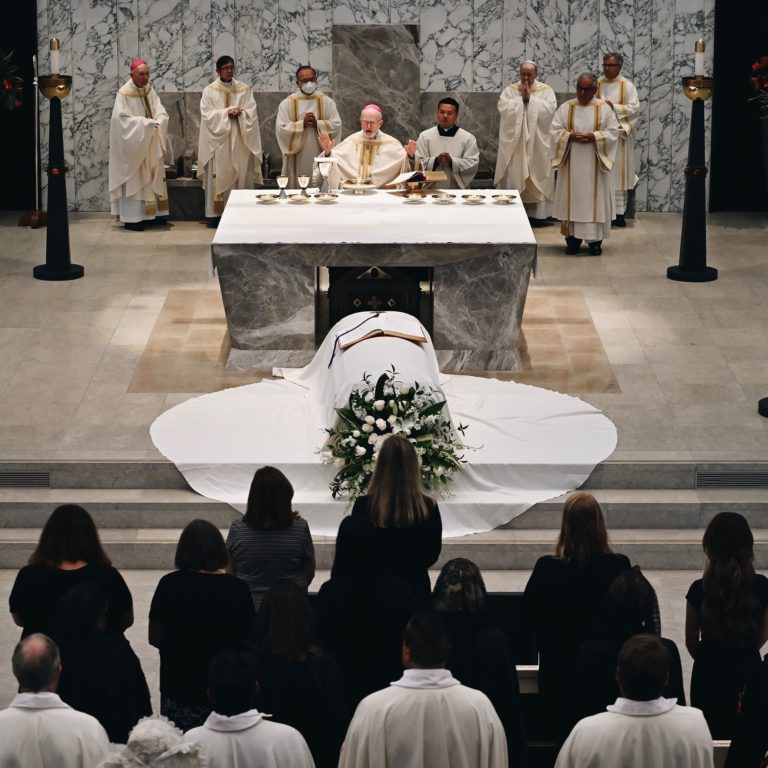
A video about Dolní Bojanovice – the Birthplace of Bishop Peter Esterka (in Czech language)
